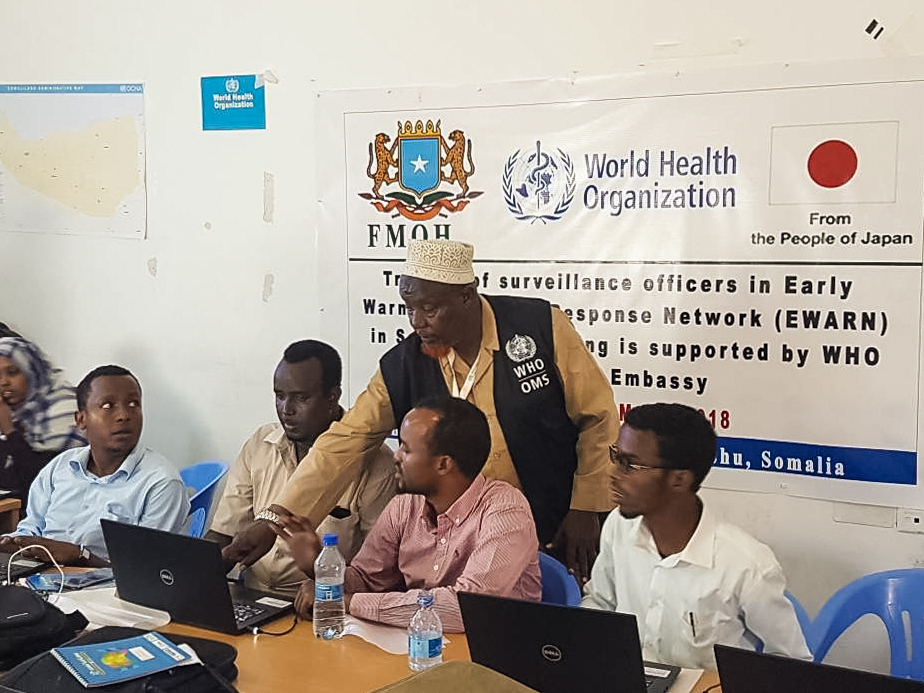 29 March 2018 – WHO concluded a 4-day training workshop today for Somalia’s disease surveillance officers on the use of the newly updated electronic platform for disease early warning systems (EWARN), in order to improve the national capacity to detect health threats in real-time, and respond quickly to public health threats across the country.
29 March 2018 – WHO concluded a 4-day training workshop today for Somalia’s disease surveillance officers on the use of the newly updated electronic platform for disease early warning systems (EWARN), in order to improve the national capacity to detect health threats in real-time, and respond quickly to public health threats across the country.
The workshop was held at WHO premises in the capital, Mogadishu, from 25 to 28 March 2018, and was attended by health surveillance officers from 11 regions who received training on the principles of epidemic disease surveillance and response, alert verification, rapid response activities, and reporting of alerts to capture, analyse, and share EWARN data in real-time using mobile networks and smart technologies.
Early warning, alert, and response network (EWARN) supports early detection and timely response to epidemic-prone diseases, and is a critical component of the public health response system in humanitarian emergencies. EWARN was first implemented in Somalia in 2012 as part of the public health response to the humanitarian crisis caused by conflict in Somalia. It collapsed over the years due to various factors including unavailability of critical IT support infrastructure at the time.
With the support of WHO and the Government of Japan, Somalia’s Ministry of Health relaunched EWARN in 2017, with a revised, web-based platform 265 sites to the EWARN network out of 800 health facilities across the country.
Re-activation of EWARN played a significant role in containing the cholera outbreak of 2017 that affected over 78 000 people across the country, including 1156 deaths.
EWARN relies on a network of health facilities, and public health professionals who are responsible for the collection, reporting, investigation, analysis and dissemination of information to stakeholders to implement effective public health response measures. EWARN includes both web and mobile platforms, enabling front-line health workers to work offline, and in security-compromised areas where internet access is limited.
Attendees of the workshop are expected to train surveillance officers, data clerks, and emergency coordinators working at the various health facilities that are part of the EWARN network. Additionally, they will be provided with mobile devices and laptops to report health alerts.


